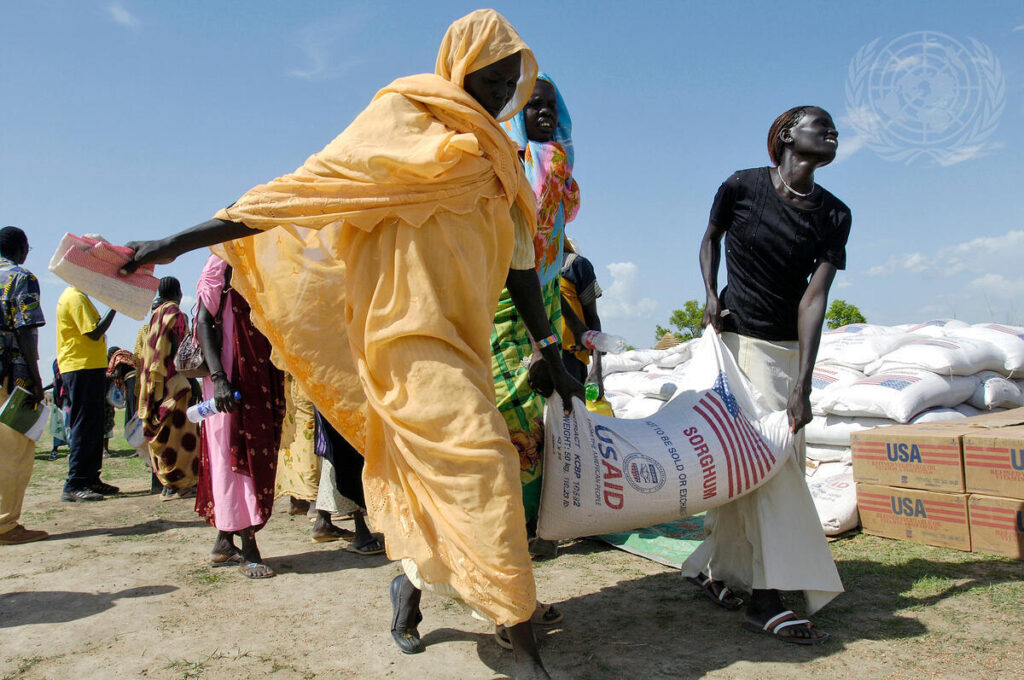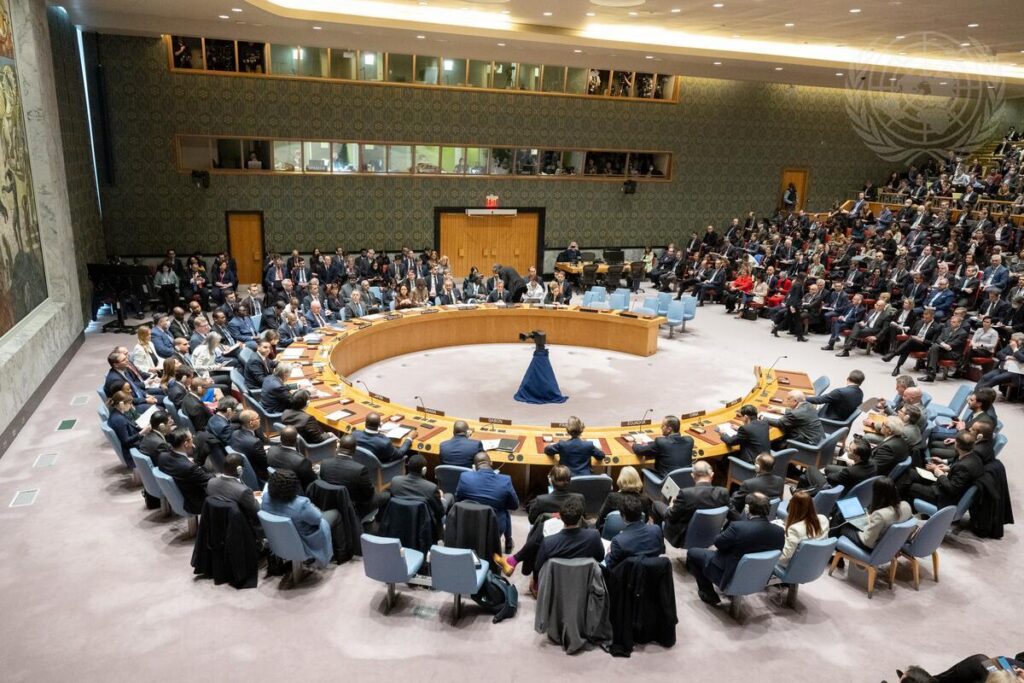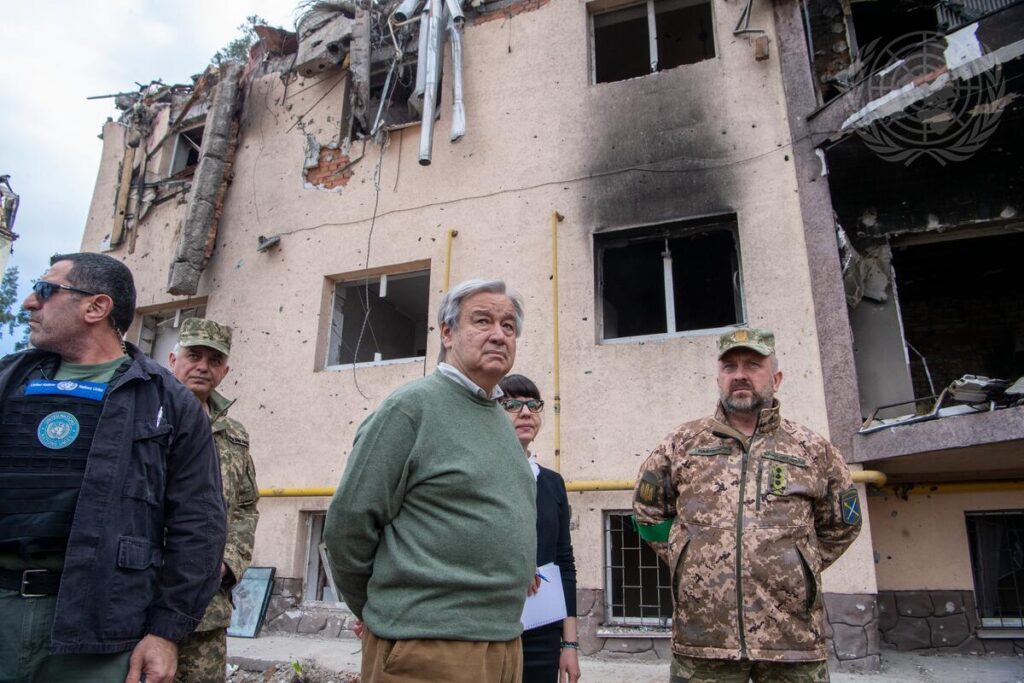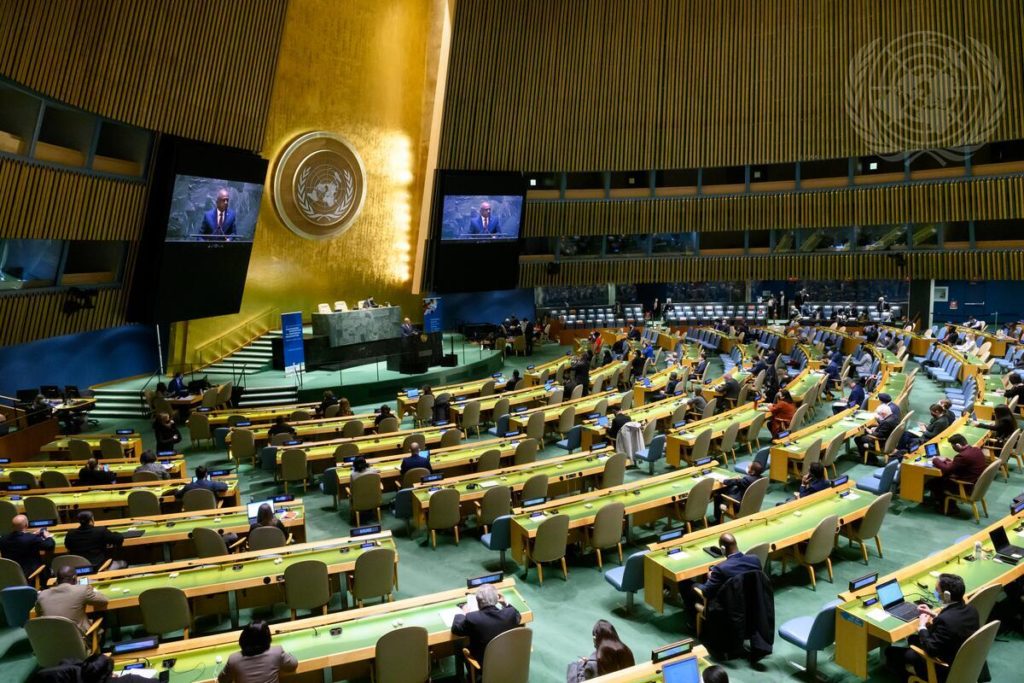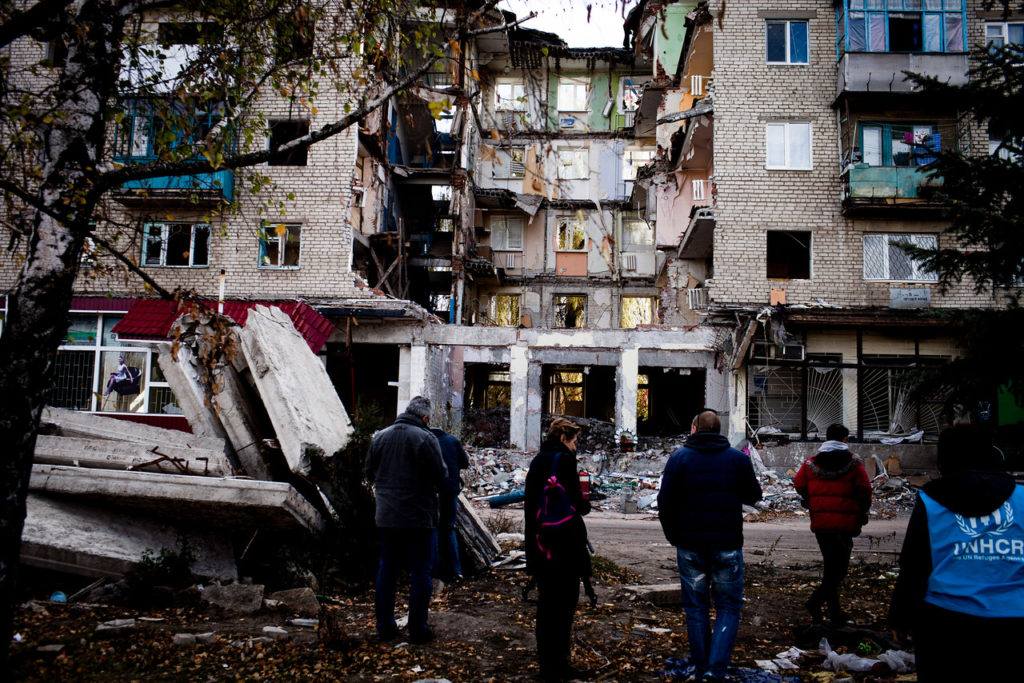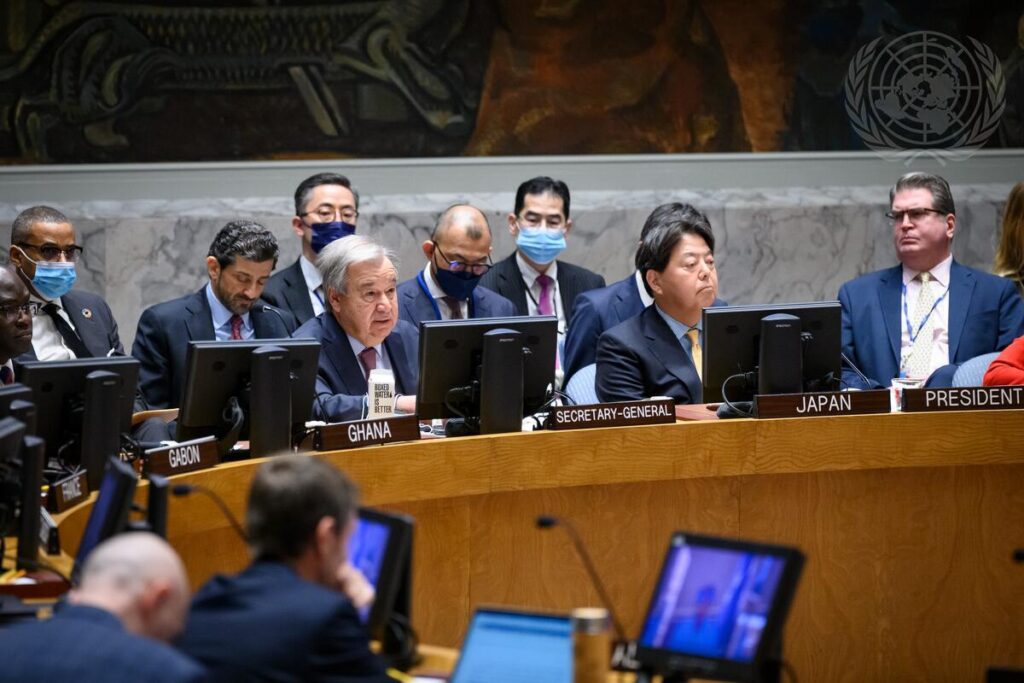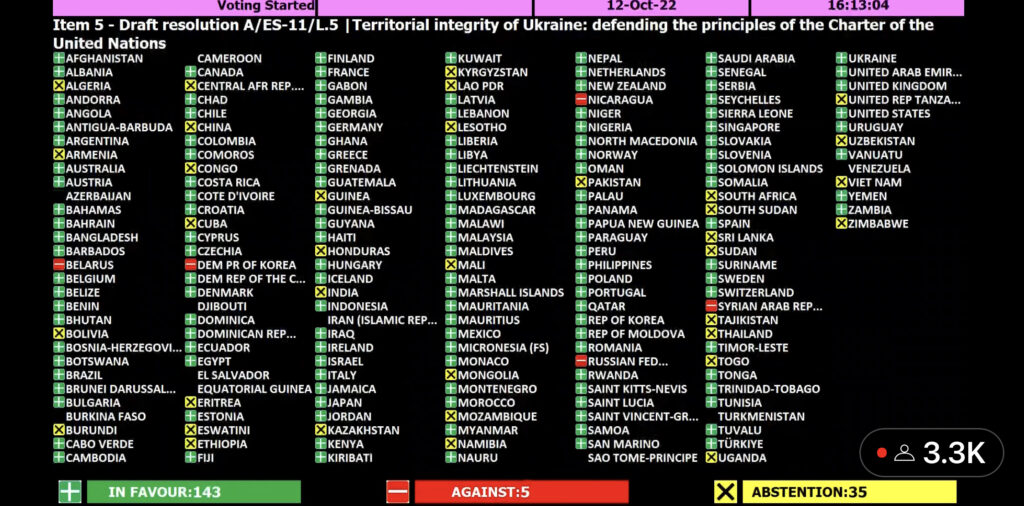Israel-Gaza war creates an “utter catastrophe” in humanitarian situation, U.N. says
New York, October 17 – Fighting between Israel and Hamas militants in the Gaza Strip in the last 10 days has killed thousands of people and displaced over 1 million Palestinians in Gaza who cannot escape bombs and missiles, a U.N. official said, describing the humanitarian situation as an “utter catastrophe” as casualties and destruction are mounting.
Joyce Msuya, a U.N. assistant secretary-general for humanitarian affairs, said in a briefing that the death toll in the current conflict has already exceeded that of the 7-week conflict in 2014 between the two sides. More than 2,800 Palestinians have been killed, over 10,850 injured and hundreds are believed to be trapped under rubble.
Israeli authorities have confirmed that 1,300 Israelis have been killed and more than 4,100 injured while nearly 200 people are kidnapped by Hamas. Msuya said the captives must be “treated humanely; hostages must be released immediately.”
She said 15 staff of the U.N. relief organization in Gaza and five from the Red Cross and Red Crescent Movement have been killed and U.N. premises in Gaza are among those damaged by the war.
“As hostilities escalate, these numbers will only rise, and an already dire humanitarian situation will continue to deteriorate,” Msuya said. “It is now estimated that as many as 1 million people have fled their homes to other parts of Gaza. In reality civilians have nowhere to go—nowhere to escape the bombs and missiles, and nowhere to find water or food, or to escape the unfolding humanitarian catastrophe.”
“As civilians are packed into an ever-smaller area, the essentials they need to survive—shelter, water, food, power and medical care—have all but run out.”
Msuya said the U.N. will continue to engage with the fighting parties and governments with influence to find ways to bring and deliver humanitarian supplies in Gaza and allow U.N. and NGO personnel enter and exit the strip.
“We will continue to demand respect for international humanitarian law. Civilians and civilian infrastructure must be protected and humanitarian relief must be facilitated, as international humanitarian law demands. We urge all countries with influence to insist on respect for the rules of war and the avoidance of any further escalation and spillover,” she said.
U.N. Security Council rejects Russia-backed resolution on Israel-Gaza war. The U.N. Security Council, which has not taken any action since fighting erupted, rejected a Russian-backed resolution that called for a humanitarian ceasefire in Gaza, release of all hostages, aid access and safe evacuation of civilians.
The 15-nation council took a nighttime vote on the resolution on October 16 and only five countries voted in favor. Those countries are: China, Gabon, Mozambique, Russia and the United Arab Emirates.
Four countries – France, Japan, the United Kingdom and the United States – voted against and six abstained, they are Albania, Brazil, Ecuador, Ghana, Malta, and Switzerland.
The council’s voting rules call for nine countries to vote in favor to pass a resolution, provided there is no veto from any of the five permanent members – the U.S., Russia, United Kingdom, France and China.
Vassily Nebenzia, the Russian ambassador to the U.N. who introduced the draft resolution to the vote, blamed the “selfish intention of the western bloc” for the council’s failure to adopt the document. “We are extremely concerned by the unprecedented humanitarian catastrophe in Gaza and the very high risk of the conflict spreading,” Nebenzia said.
But Western countries in the council said they rejected the resolution because it failed to denounce Hamas. U.S. Ambassador Linda Thomas-Greenfield said the Russian draft resolution “ignored Hamas’ terrorism and dishonored victims.”
“By failing to condemn Hamas, Russia is giving cover to a terrorist group that brutalizes innocent civilians. It is outrageous, hypocritical and indefensible,” she said. “We cannot allow this Council to unfairly shift the blame to Israel and excuse Hamas for its decades of cruelty,” she said.
United Nations correspondent journalists – United Nations correspondent journalists – United Nations correspondent journalists – United Nations journalism articles – United Nations journalism articles – United Nations journalism articles – United Nations News – United Nations News – United Nations News
Israel-Gaza war creates an “utter catastrophe” in humanitarian situation, U.N. says Read More »


